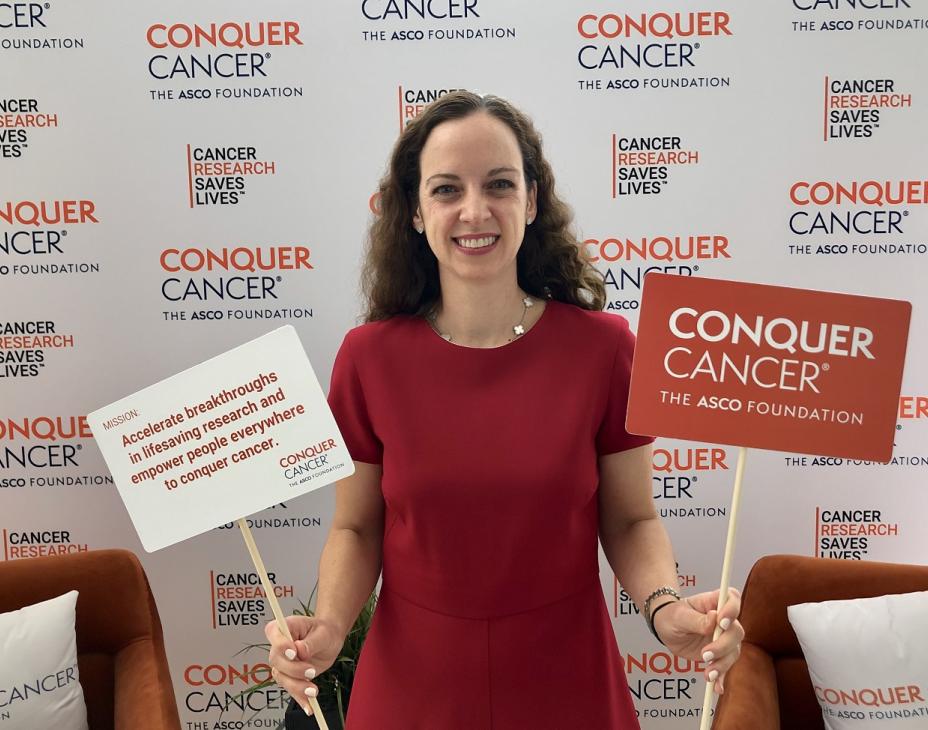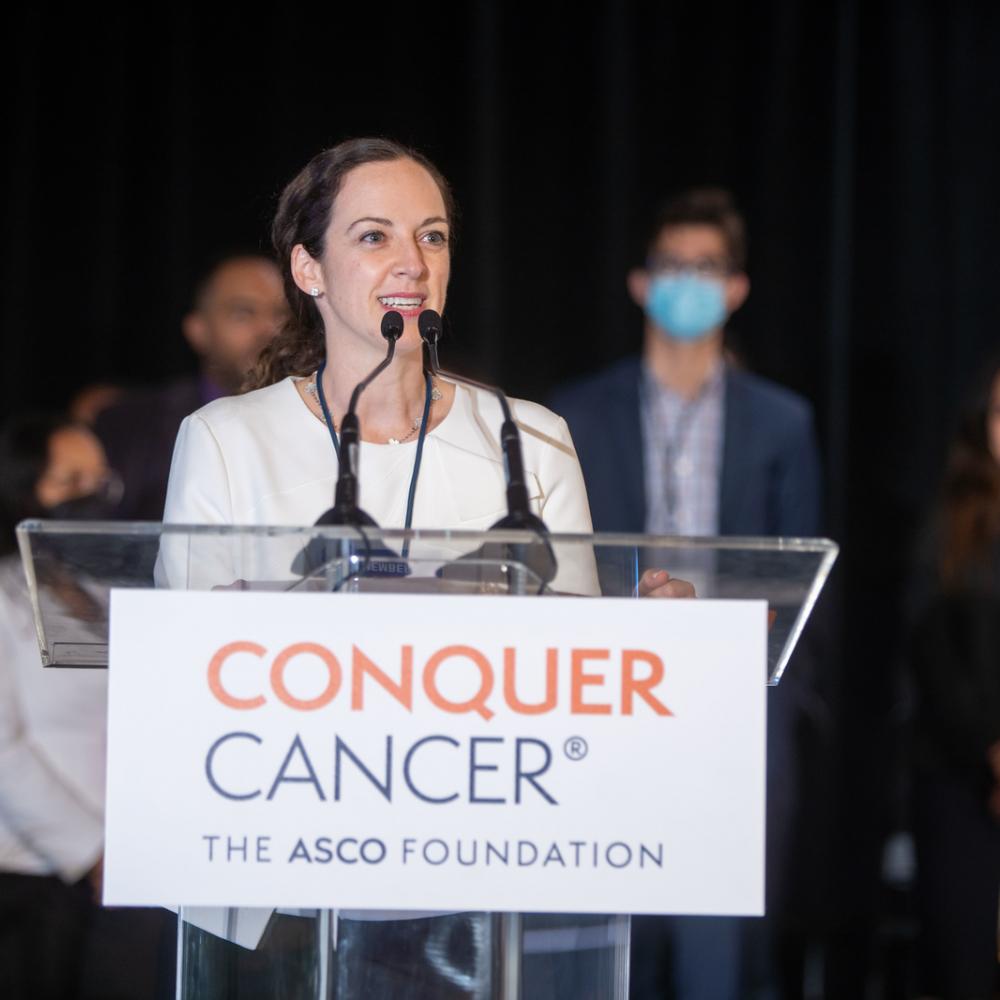These researchers have dedicated their careers to finding new treatments and cures for people with cancer.

Until now, patients with lung cancer, the leading cause of cancer-related deaths in the U.S, have had few avenues for personalized treatment beyond standard care. For more than 10 years, Dr. Byers, of the University of Texas MD Anderson Cancer Center, has worked to detect biomarkers.
“We have been able to develop a number of biomarkers and identify new subtypes of lung cancer that open the door for more personalized treatment options,” says Dr. Byers, who in 2008 received a grant funded by Conquer Cancer, the ASCO Foundation.
Predicting & Personalizing Treatment
When Dr. Byers began her Conquer Cancer–supported research, there was only one known biomarker that could help personalize care for patients. At the time, most patients received treatment based on which drug(s) had the fewest side effects or were considered standard care. Dr. Byers worked to fill a vital gap in lung cancer research by providing more biomarkers to better predict the most effective treatments.
“The [grant] research has contributed to better care for patients with lung cancer by revealing that lung cancer is really many different types of lung cancers,” explains Dr. Byers. “By using protein signatures to identify new types of lung cancer, we have been able to find specific treatments – such as targeted therapies or immunotherapies – that are promising for specific groups of patients.”
By investigating which genes and proteins are activated in small cell lung cancers (SCLC) – an aggressive form of the disease – she has identified four major subtypes of SCLC. Noting which biomarkers are turned on in these cancers helps Dr. Byers determine which drugs may be most effective in targeting them. This is especially important as SCLC has historically been treated with a one-size-fits-all strategy.
“This builds directly on the approach from my original [grant] and has led to a number of new, promising biomarkers – as well as new drug targets – that are being studied in clinical trials,” says Dr. Byers. “These subtypes help guide the development of new clinical trials with biomarker-matched treatment for patients with SCLC.”
Dr. Byers – whose grandfather passed away from lung cancer when she was a medical student – finds immense gratitude in seeing patients directly benefit from biomarker discovery. One of her patients was recently matched with a clinical trial based on a biomarker developed.
“Seeing research translated from ‘bench’ to ‘bedside’ is what it is all about,” says Dr. Byers. “I am grateful that I can play a role in bringing new treatment options to our patients and hope that these will improve treatment options for future patients as well.”
Future Research
As Dr. Byers pursues the next steps in her research, she relies on a multidisciplinary team of mentors and scientists with whom she has collaborated since receiving her Conquer Cancer grant. She credits two ASCO members, Dr. John Heymach and Dr. Gordon Mills, for their grant mentorship and continued guidance in her lung cancer research.
“These mentors have been instrumental in my ability to make a sustained impact in lung cancer research and to bring new clinical trials to patients with cancer. My [grant] project also led me to establish a cancer bioinformatics team that continues to meet twice a week and has leveraged ‘big data’ to identify new types of lung cancer and promising new drug targets,” says Dr. Byers.
“It has been exciting to see how research is truly accelerating progress in lung cancer. The little moments in clinic when patients share their excitement about watching their grandchildren play sports or talk about a trip they’re planning are so meaningful,” says Dr. Byers.
